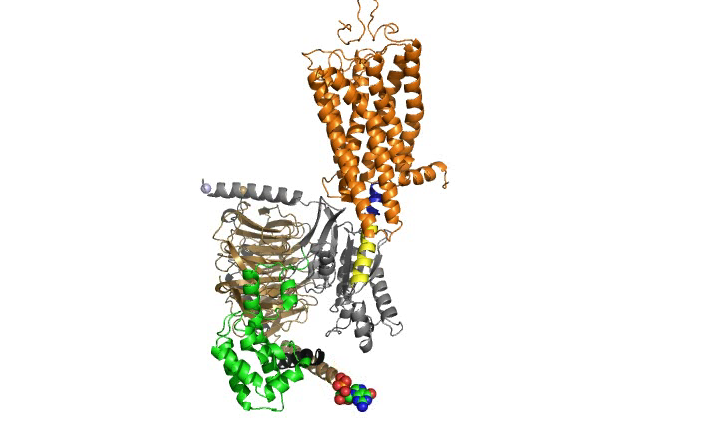Health And Medicine
-

Getting the right fit for hearing aids
The pattern of hearing loss across sound frequencies affects the benefit from hearing aids. Read MoreSep 8, 2011
-

Looking up: VU pediatrician is top amateur astronomer
There is a list, famous among astronomers, of 110 faint objects in the night sky, first cataloged by French astronomer Charles Messier in the 18th century. A “Messier marathon” is when astronomers begin at dusk and work until dawn, hoping to locate every single one, searching amid the field of… Read MoreSep 2, 2011
-

Starvation diet kills staph bacteria
The antibiotics of the future could take a page from the immune system’s playbook – and “starve” bacteria of the nutrients they need. Read MoreAug 26, 2011
-

Keep left, protein says
A regulatory loop in zebrafish may explain how the right and left sides of our brains take on different functions. Read MoreAug 26, 2011
-

Discovery of how G proteins ‘turn on’ may lead to better drugs
Researchers have discovered how key proteins are “turned on” and transmit signals inside the cell. The discovery could lead to new, more effective drugs. Read MoreAug 18, 2011
-

Heart attack repair kit
A certain signaling pathway could be key to improving cardiac repair after a heart attack. Read MoreAug 16, 2011
-

Study seeks genetic profile of mitral valve regurgitation
The Department of Cardiac Surgery and the Division of Cardiology are collaborating on a study to better understand the genetic profile of mitral valve regurgitation. Read MoreAug 15, 2011
-

Commonly prescribed antibiotic may not be best for kids’ MRSA
Researchers at Vanderbilt find less commonly prescribed drug is more effective in treating MRSA skin infections in children. Read MoreAug 15, 2011
-

Focus of fear in Williams syndrome
Brain imaging reveals clues about fear in Williams syndrome. Read MoreAug 11, 2011
-

Depressed brains more stressed
Patients with major depression may have altered gene expression associated with stressful conditions in certain brain areas. Read MoreAug 11, 2011
-

Study suggests new lung cancer therapy schedule
A new lung cancer study led by Vanderbilt-Ingram Cancer Center investigators found that various non-small cell lung cancer cells grow at different rates, which may explain why some tumors become resistant to anti-cancer drugs faster than others. Read MoreAug 10, 2011
-

Number of genes associated with MS doubled
An international team of scientists has identified 29 new genetic variants linked to multiple sclerosis, providing key insights into the biology of an important and very debilitating neurological disease. Read MoreAug 10, 2011
-

Cancer study seeks clues to halting metastasis’ march
Vanderbilt researchers have identified small molecules that can restore normal protein expression in human colorectal carcinoma cells and prevent invasive cancer growth. Read MoreAug 10, 2011
-

Clear vision of protein interactions
Researchers identify protein partners that may keep the lens of the eye transparent – and free from cataracts. Read MoreAug 5, 2011
-

Investigator’s work leads to simpler latent TB therapy
New research on tuberculosis offers an important development in preventing the centuries-old disease. Read MoreJul 29, 2011
-

Study examining new vaccine for avian flu
Vanderbilt researchers are seeking healthy adults ages 18-49 for a study testing a new vaccine against H5N1 influenza, a strain which has the potential to be the next pandemic flu virus. Read MoreJul 29, 2011
-

Deciding who’s who in heart valves
Identification of a gene that is involved in the development of heart valves offers new insights into congenital heart valve disease. Read MoreJul 29, 2011
-

Connecting the dots in schizophrenia
Abnormalities of the hippocampus, a seahorse-shaped brain region involved in learning and memory, may play a role in the psychotic symptoms and cognitive deficits of schizophrenia. Read MoreJul 29, 2011
-

Stress circuitry key to drug relapse
Brain systems involved in the body’s stress response may drive drug relapse. Read MoreJul 22, 2011
-

Give me some skin
A new understanding of the biochemical pathway that builds our skin barrier could lead to treatments for skin diseases. Read MoreJul 21, 2011